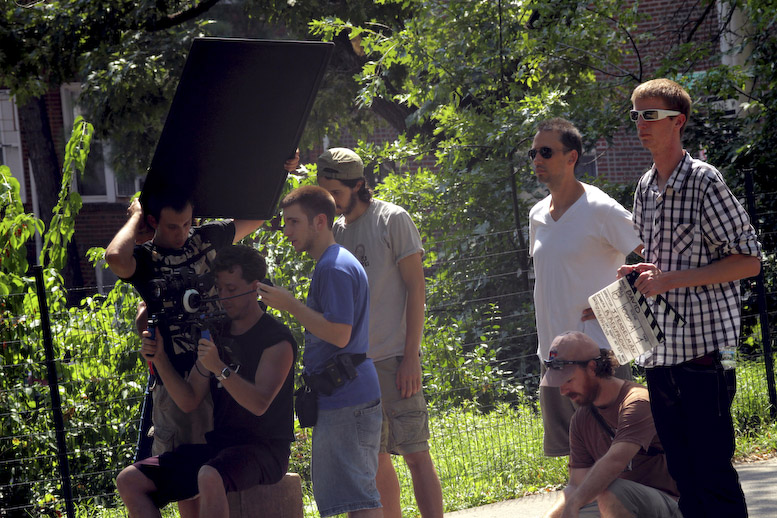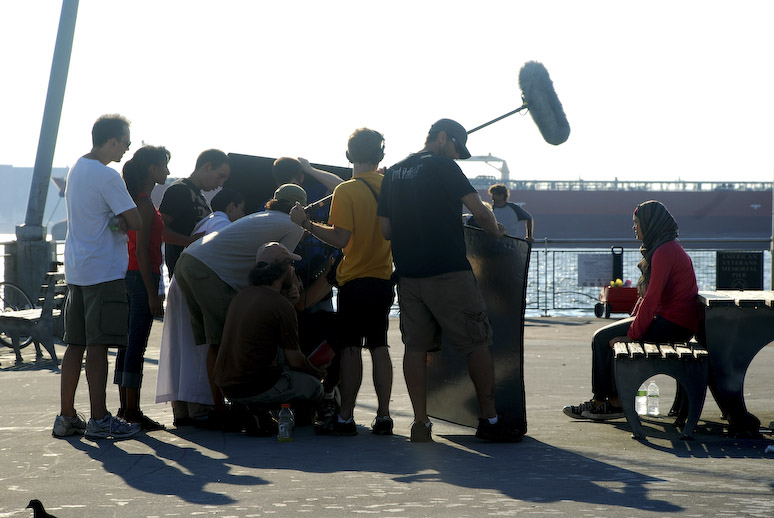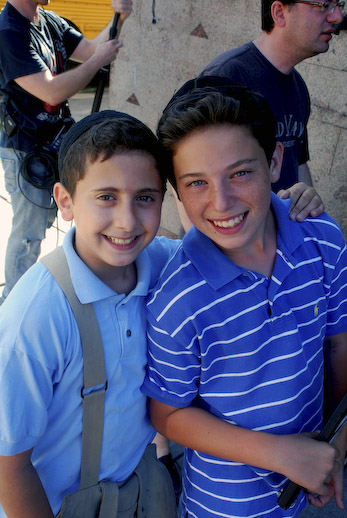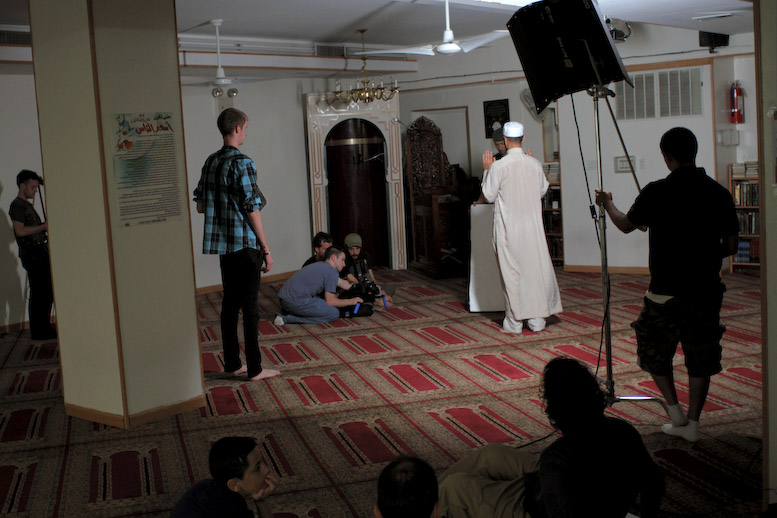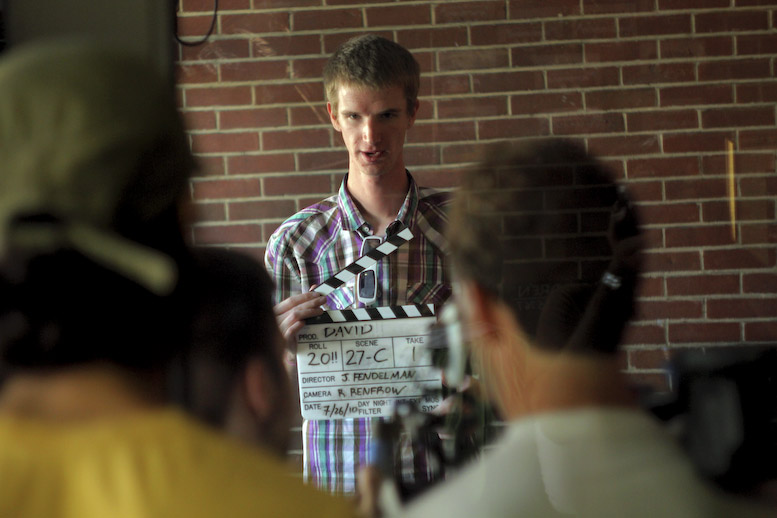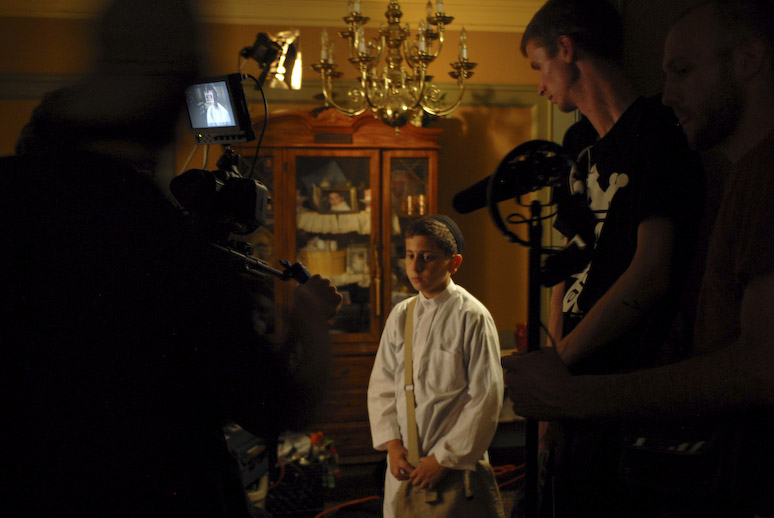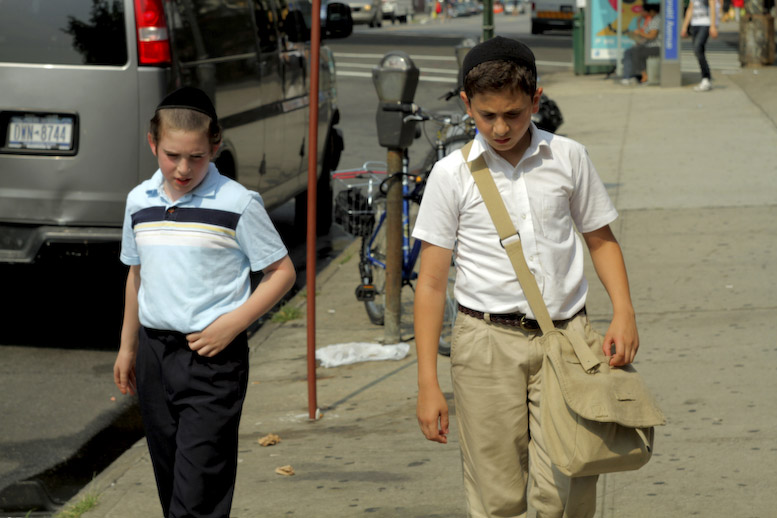Making of
Director Statement
"David" is first and foremost a story of friendship between two boys. The film questions the boundaries of our cultures and religions, and looks at how static and yet fluid these boundaries can be.
With a street-level perspective, the story begins with Daud an eleven-year-old Muslim boy and his struggle to fit in – within his family, community and wider world. What starts as an innocent mistake, develops into an unlikely friendship. Two boys, both of conservative religious backgrounds, find commonality in each other. The irony that Daud, a Muslim, finds friendship amongst a group of Jewish kids is as far into the explicit politics that we wanted to go in the film. Their connection is born out of a closeness that reflects the unique positions of both the Arab and orthodox Jewish communities in America: they both strive to live modern lives while retaining their core religious and cultural virtues. This in itself is a microcosm of four centuries of the American experience for successive waves of immigrants, as expressed in the film by the Rabbi in the Yeshiva.
We also wanted to show a little of the tension within conservative communities living in America – as told through the storylines involving Daud’s family. Daud’s father, Ahmed, embodies the ‘old ways’. Playing the role of a conservative Imam in New York puts him in the middle of challenges that he never would have been trained to deal with in his home country, as members of his community and family engage with the offerings of an open and different world. His resistance to change is shown through his conflict with his daughter, Aishah, who is desperate to go to university – not as a way of escaping a conservative upbringing, but rather because it is the path that will allow her to realize her dreams. Like many Muslims in America, Aishah’s struggle is one of retaining her core Muslim identity, while at the same time becoming part of the fabric of American society.
The film is not our attempt to provide answers to issues of prejudice, culture or religion – as they run far deeper than the scope of a film - but rather to raise questions in a different tone; ones we hope can help us better understand a little bit about each other, and ourselves. Too much of the conversation about Islam in America has been tainted by ignorance and misunderstandings, and the same is true within the wider Islamic world about Americans and Jews. Unfortunately it seems easier to deal with each other as stereotypes rather than people. It was a truly special experience to watch the actors who played Daud and the Jewish boys interacting when the camera was off: an Arab boy and five Jewish boys playing, joking around, and being friends. It was difficult to shoot the moments of tension between the boys, as it contradicted how they related in real life. In a time of pervasive cynicism and mistrust, these deeply touching moments offered a useful lesson that perhaps we should be spending more time reflecting upon the similarities that we all share, rather than being scared by the differences we perceive.
